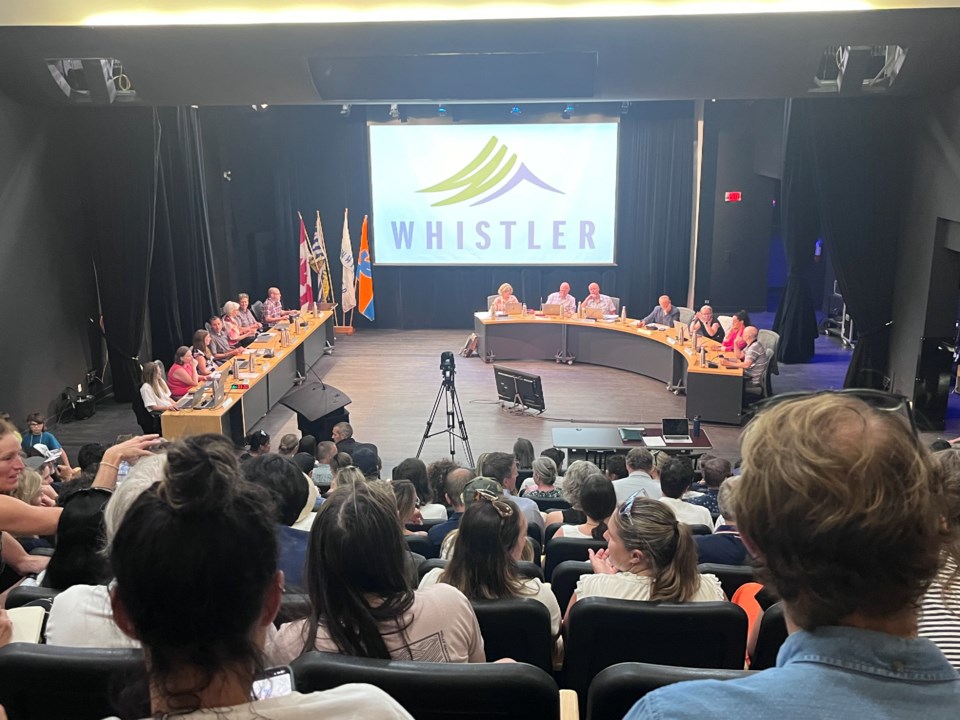I capitulate. While not exactly inundated by the pedantic semantic police, I’ve been schooled. Appropriate in this case, eh?
While my mail is running largely in favour of council’s most recent action regarding Whistler Waldorf School (WWS), those taking me to task seem to focus on my use of the word private to describe WWS. I shall, henceforth and forever, cease to call it a private school and use the term independent instead. Happy?
The province of British Columbia has decided independent, as it pertains to schools, is a term of art. It uses the term to distinguish between private schools as they’ve defined them, being strictly for-profit schools, and independent schools. That said, the definition of independent does violence to the standard definition of the word.
Outside of the province’s usage, independent generally means an undertaking free from outside control, not depending on another’s authority. As used to define independent school, it means a school outside the public school system that operates on a not-for-profit basis but receives funding from the Ministry of Education—half or 35 per cent—and teaches the B.C. curriculum.
So, WWS is an independent school. Not a private school. And definitely not a public school.
It is, perhaps, a distinction without a real difference. Under the BC School Act, every resident of school age is entitled to enrol in a public school. As a right.
If a school-age resident wants to enrol at WWS, they fill out an application, pay an application fee, and they may or may not get in.
If they want to go to a private school, same drill... only harder and more expensive.
So, independent-indeschmendent, the issues remain the same. WWS needs a home; Whistler needs to get Spruce Grove back to its parks-and-recreation purpose.
But enough about WWS. Sort of.
What I’m really curious about is who’s running the asylum, er, the Resort Municipality of Whistler (RMOW). Speaker after speaker during the public statement/question period on July 9 referenced negotiations or discussions conducted with RMOW staff over the past year or two to work out a permanent solution, a forever home for the independent school.
By contrast, council in its closed session decided this year’s lease was the end. While the language, a final one-year lease, was absolute, I still suspect the intention was to light a fire under the independent school to find a permanent home.
Which raises the questions: Did staff—whomever they are in this case—know the intention of council? Does council know what staff are doing? Is there any communication between the two? What, if any, report did council have from staff that brought them to the decision to inform the independent school this was the last lease renewal?
Apparently none of these questions can be answered since the closed meeting cone of silence fell on the proceedings.
The provision for closed meetings in the Community Charter is broad enough to allow municipal bodies to close just about anything other than the act of creating bylaws. Closed meetings and “no comment” answers are, of course, antithetical to open, transparent government, something I seem to recall is one of council’s strategic initiatives.
If staff knew council desired to end the decades-long encampment of WWS at Spruce Grove, why engage in prolonged discussions with the school’s representatives about offering the current location or one nearby as a permanent solution?
I guess it’s possible all those speakers were making up references to discussions, but the weight of their presentations would almost make that a group hallucination... and not one they’d want to trot out in public.
So if staff were discussing the issue in good faith, were they doing so at the behest of council? If so, did they report back to council that WWS’ wishes were so completely out of line council should take the action they ultimately took? Did council just decide this was as good a time as any to put pressure on the school? Were there questions raised about the school lease being incompatible with the terms of the Crown Grant for the land at issue?
Questions, questions, questions.
To trot out one of my favourite observations, in the absence of information, we are only left with speculation. And speculation is generally not kind toward the party or parties who could cast light on the issue.
There are valid reasons to hold closed sessions. I’m less sure there are valid reasons to fail to explain why a decision was taken.
This isn’t an issue that is going to go away. WWS is an important part of the education landscape. The school knows this; council knows this. Even if the existing public school capacity could absorb WWS students—it can’t—there are sound reasons it should continue to build on the success and reputation it has built over the past decades. As one speaker pointed out, there are only three Waldorf schools in Canada that offer K through 12 schooling. WWS is one.
Reading back to the early days of Alta Lake School, it’s clear the passionate people who founded WWS built it step by step. It took a great deal of commitment and a lot of work to make it what it is today. It is also clear the founders and builders always intended the location at Spruce Grove to be temporary. A lot of effort went into trying to find another location. Why none came to fruition is open to debate, but at this point the reasons seem less important than finding a solution.
What we need, instead of secrecy, is a coordinated, concerted effort to find that solution. This isn’t a Star Chamber, smoky back room problem to be solved. And it’s not an intractable problem. It will take good faith and compromise. Whistler may be relatively poor in land but the town is rich in enterprising people. I’m willing to bet this problem can be resolved.
The future of the independent school depends on it.




